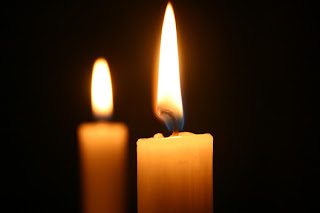We are constantly bombarded by new products and technologies that are designed to “help” us and make our lives easier. This endorsement overload seems to be making us prone to forgetting that sometimes it’s the simple things that make life easier.
All I have to do is look at my iPhone to be reminded of this fact. I have apps for Shabbat times, blessings, a kosher timer, Aliyah, Hebrew translation, Torah, Siddur, Tehillim, Tanya, and many others. You can see a recent list of other popular iPhone apps here. But, while all these apps are designed to make observance easier, I question whether they are actually helping in my spiritual growth or hindering it.
Having all of this information at our fingertips can make us intellectually and spiritually lazy. With apps reading for us and showing us only what we need to know, we fail to give the words, the brachos, the words of Hashem our own voice. We open the app and hang on by our fingertips as it launches us into recitation and binds us to its electronic pace.
This is only the latest incarnation in an electronic evolution that has led many to stray from their faith. Intellectual lethargy doesn’t let us ask why, doesn’t allow room for digging deeper, and doesn’t bring the Torah to life. There is not one answer for every question. There is only one fact that guides the debate… Torah is truth. Hashem gave us the Torah to guide us and gave us one another to keep us on the path that leads back to Hashem and His light.
It is our debate with one another, the questions we constantly ask, the searching for answers in Hashem’s words that elevates our souls. Technology can’t replace this process and it should not be applied in such a way. For the occasional reference or a quick translation, these apps and similar technology driven products are fine but they should not be a regular part of our lives. These things should not be a barrier or we run the risk of them replacing the relationship we have with Hashem and the relationships that we have with one another.
However, technology can enhance our ability to reach out to one another and explore topics without the physical boundaries that geography places upon us. I embrace social media sites such as Twitter, Facebook, and LinkedIn because they allow me to discuss and debate Torah and Talmud with people from around the world. Given my limited knowledge, this is a great asset to my learning and can lead me to discover aspects of my faith that might have taken me years to come across.
The one catch to this new means of Torah exploration lies in the people that feel they need to declare rather than discuss. I am not talking about simple clarifications of Talmudic quotes. Most of the time, these declarations revolve around affiliation and conversion. I am talking about Jews declaring that their version of Judaism is the only right version and that everyone else’s view is “insane”, “ignorant”, or “barbaric”.
Now, in my experience, the most interesting part of this issue is that the most pointed barbs do not come from the Orthodox side but from the Conservative, Reform, and Reconstructionalist movements. The further to the left the more repugnant the accusation. I am not saying that their views are right or wrong, all I can do is state my own opinion as to what I believe to be true (as is obvious in my posts) and ask questions. I do not declare anything or call them despicable names. We are attacked by too many people from outside of Judaism; we don’t need to attack one another.
I can’t help but ask why these Jews would insist on attacking other Jews? Is it because that they fear what they don’t understand? Is it because they can’t come to terms with their own faith? Is it because that deep down they feel that what they believe really isn’t Judaism? I don’t know the answer to any of these questions and I am not going to try and attempt to answer them. I will not make any declarations. All I can do is give you my perspective and open up the discussion by asking some questions.



